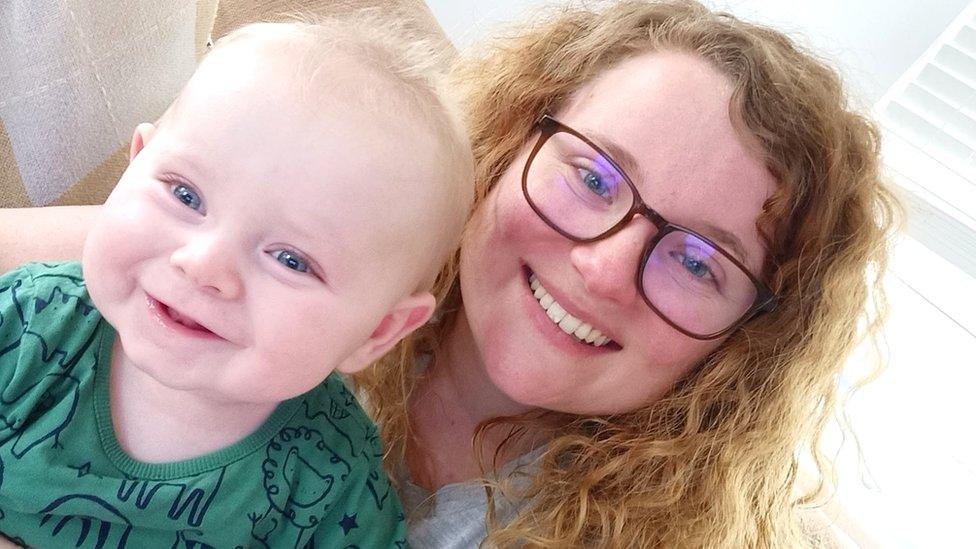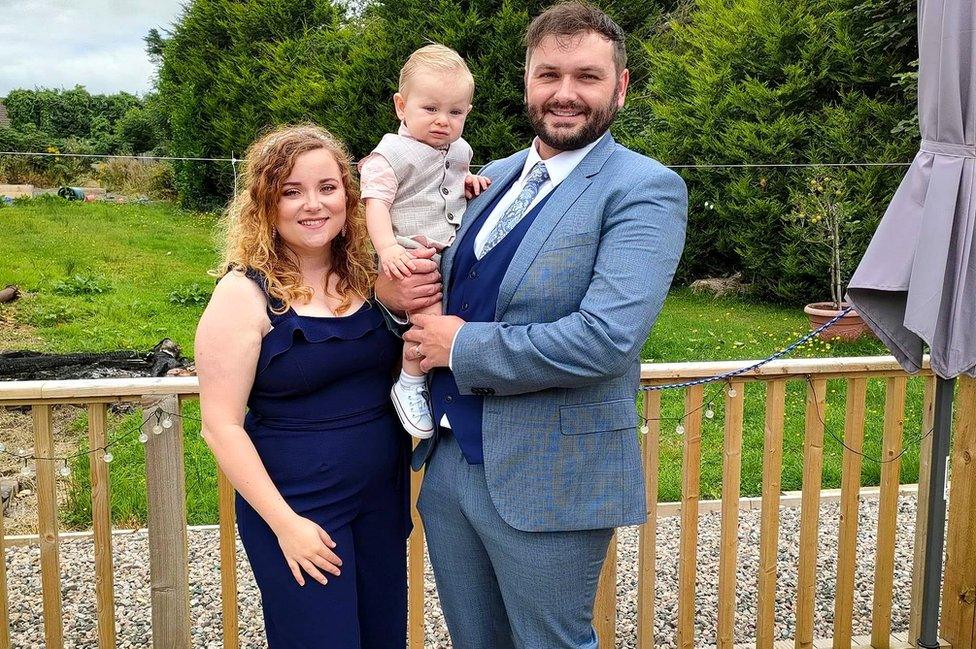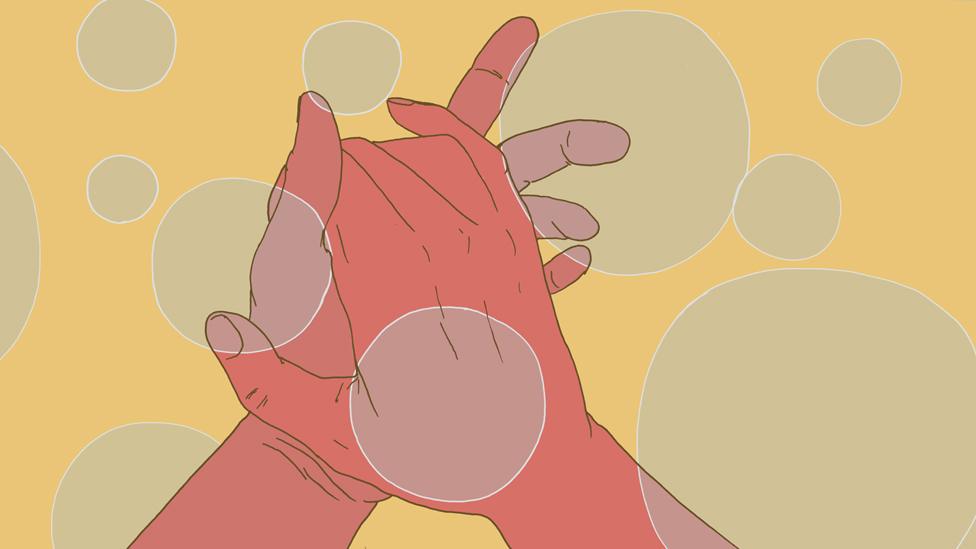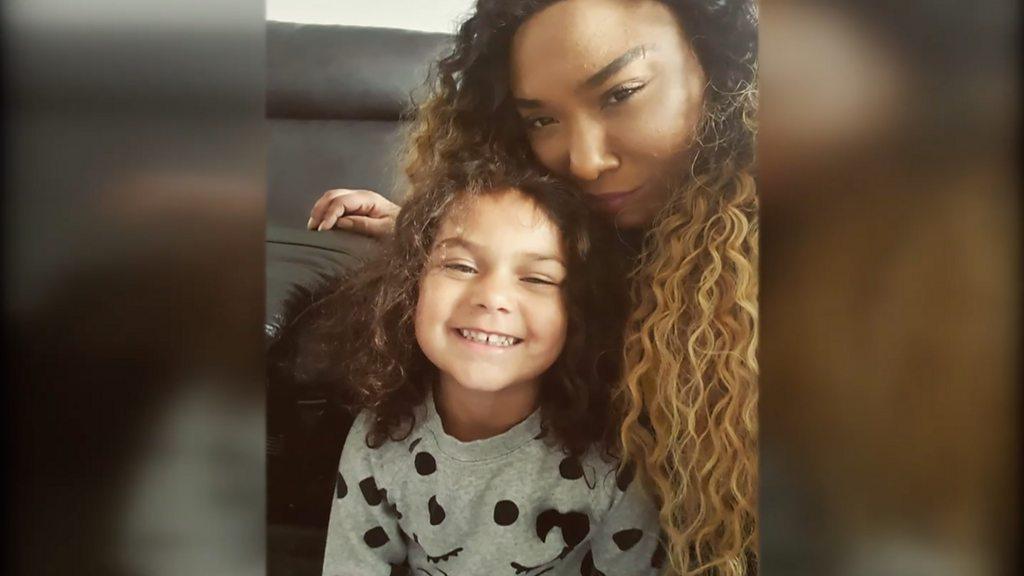I was diagnosed with OCD after having my baby
- Published

Emily McMenamin and her son Cillian
It was shortly after the birth of her son nearly two years ago that Emily McMenamin noticed she was becoming obsessive about tidiness and routines.
The new mum was fanatical about ensuring Cillian's twin packs of baby dummies were properly paired.
When Emily became convinced that any disruption to her routine would result in her son being hurt or killed she found it easier not to leave her Dunfermline home..
After realising this was beyond the anxiety felt by most new parents, the 30-year-old got help and was diagnosed last year with perinatal Obsessive Compulsive Disorder (OCD).
OCD is a serious anxiety-related condition and it is estimated that 1,000 women in Scotland will experience the disorder in the 12 months after giving birth.
The Royal College of Psychiatrists in Scotland says the illness often goes undetected and symptoms for new mums can include irrational thoughts or behaviours focused on protecting their baby.
'He's going to end up dead'
The "worry about what if" is what dominated Emily's life.
She explained: "What if the car broke down and I'm stuck in the middle of nowhere and I couldn't feed him and he would die.
"What if I was going to the park and didn't have that nappy and then he has to be naked and then he's going to get cold and then he's going to die.
"It would always just go to that extreme; he's going to end up dead."
Emily says her OCD caused her to have irrational fears about her baby dying.
Emily says her husband Lee was very supportive but she recalled getting angry if the dummies for Cillian, which came in pairs, were not matched properly in the right boxes.
"No, it has to be this way. It has to be this way. But then he [Lee] could not understand why I felt like that and why I was so upset. It was this vicious circle.
"I was too scared to go out too in case something went wrong, in case the car broke down and I was stuck in the middle of nowhere, in case that he would fall out of the pram and hurt himself."
After her OCD diagnosis from the NHS Emily was referred to a psychologist where, after eight months of therapy, she managed to get on top of the situation and says she realised "there was no need for it to be like that".

Emily with her husband Lee and Cillian
Research conducted in 2013 suggested that 1,000 women in Scotland experience OCD in the 12 months after giving birth.
Dr Selena Gleadow-Ware, chairwoman of the perinatal faculty at the Royal College of Psychiatrists in Scotland, says OCD "can affect a number of pregnant women and new mothers" and can be "distressing and difficult to talk about".
She added: "Some women may have a pre-existing condition while others develop it for the first-time during pregnancy. It's more likely in first time mothers but it can happen during or after any pregnancy.
"We know the influence of the Covid pandemic and indeed coming out of it, may well have triggered or even amplified the illness in susceptible people.
"Symptoms include intrusive and irrational thoughts or behaviours which are often focused on protecting the baby or preventing harm. These can be very distressing and difficult to talk about."
What is OCD?
It is a serious anxiety-related condition where a person experiences frequent obsessive thoughts, according to the charity OCD UK.
The illness affects as many as 12 in every 1,000 people, including children, and often involves repetitive compulsions, impulses or urges.
OCD UK says there are various forms of the illness, but typically a person living with it fall into four main categories.
These categories involve repetitive checking, concerns about contamination, hoarding and intrusive thoughts. The last involves "obsessional thoughts that are repetitive, disturbing and often horrific and repugnant in nature", says the charity.
- Published1 September 2020

- Published10 May 2020

- Published24 November 2020
